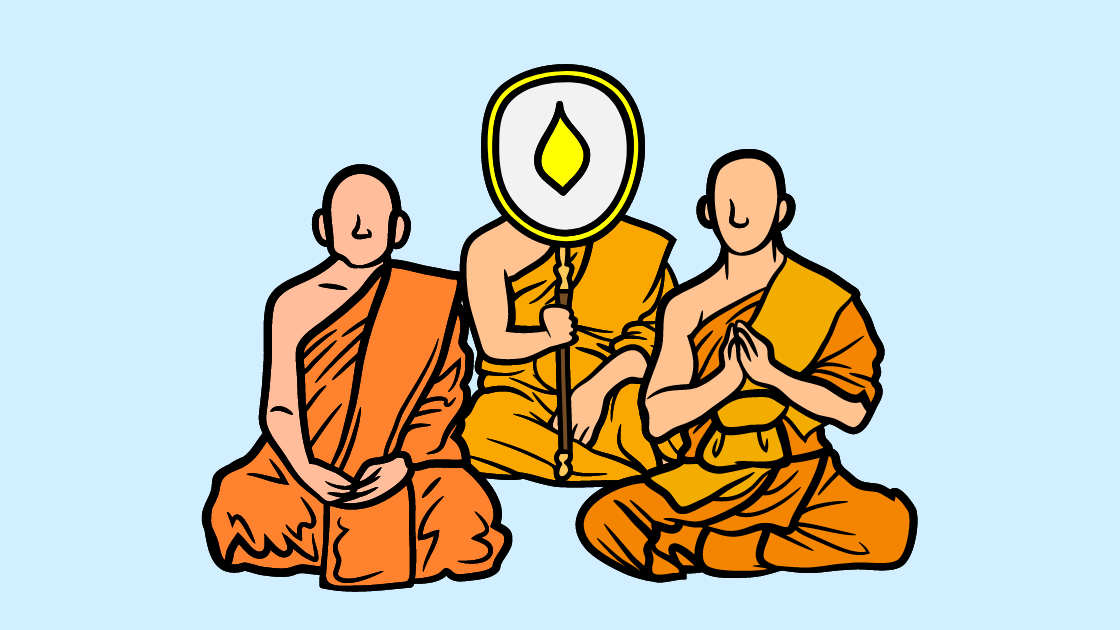Buddhists believe in the cycle of life and the reincarnation of the soul. With many groups of Buddhist around the world, their funerals vary from traditional ceremonies to modern ceremonies that incorporate Christian beliefs. There is a wake and funeral usually followed by cremation.
One central Buddhist belief is samsara, or the cycle of life – the endless cycle of birth, death, and rebirth. The polar opposite of samsara is nirvana, when you are finally free from the cycle of rebirth and reincarnation. Many Buddhist funeral customs exist because of this basic thought.
Although there are many types of Buddhism, there are some basic Buddhist funeral traditions typically adhered to by all of them. Many in the West incorporate Chrisitan beliefs into their funeral;s.
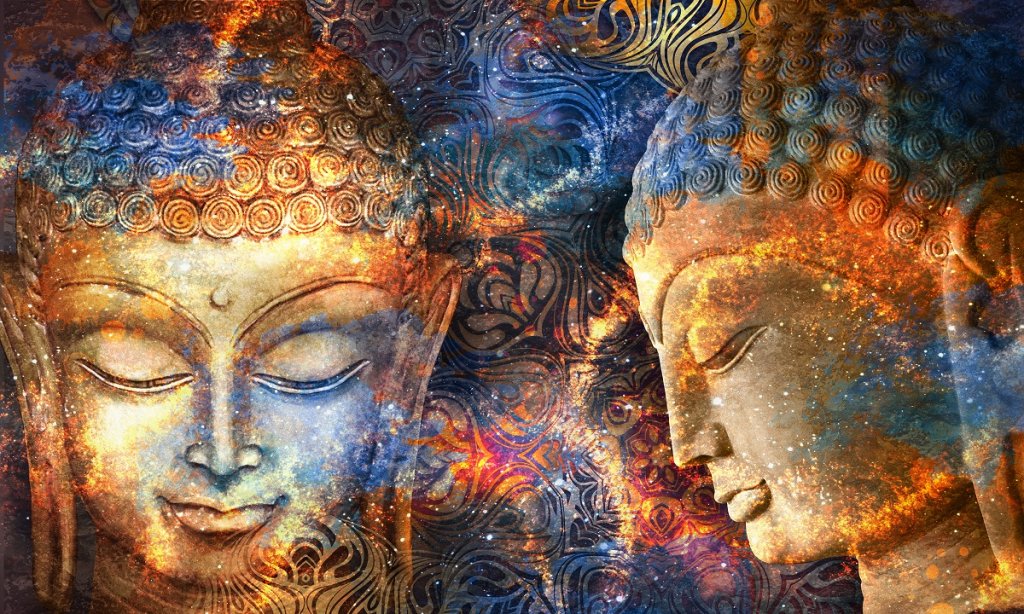
Table of Contents
What Are Common Buddhist Death Rituals?
As in many cultures and religions, the death rituals can actually start when the person is still alive. Since Buddhists believe that your final moments of life have an impact on your rebirth, they try to be sure people don’t die alone. Rather than prolonging life when death seems imminent, the end-of-life rituals focus on keeping the person peaceful, calm, and focused on all good deeds they have performed in their life.
To facilitate a peaceful environment, the family would put images of Buddha as well as flowers around the room. The purpose of this is two-fold: to create the peaceful environment and also to put a focus on religious thoughts during their final moments. The mandala blanket that is often used for meditating may also be placed in the room.
Much like a priest or minister would visit a dying person, Buddhist monks often spend time with someone in their last days, hours, or minutes of life. They will read prayers and chant verses with the family. Those with the person will spend time reflecting on the person’s life, focusing on their good deeds.
Buddhists do not believe that the soul leaves the body right away, so, in Buddhism, the body of the deceased person is not touched or moved for at least 4 hours after the person passes.
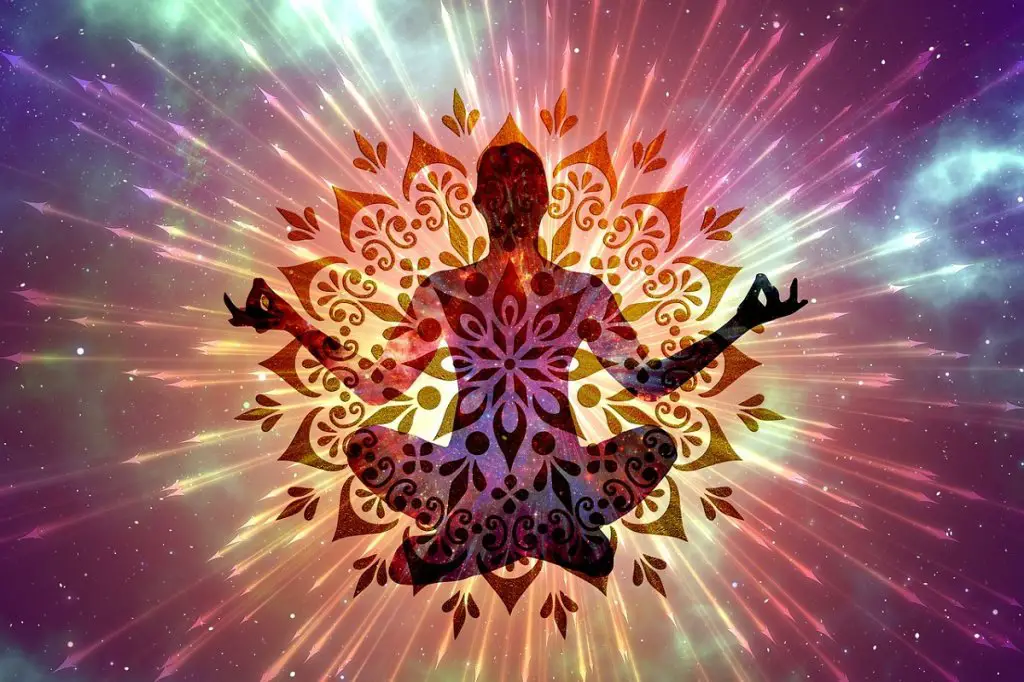
Are Buddhists Usually Cremated?
Although it is not required, Buddhists generally choose cremation. Since they believe in reincarnation, the thought is that cremation is a good way to release the soul from the physical body. That does not mean that people must choose cremation.
Not only can people choose to be buried, but Buddhists can also choose to have a Westernized funeral complete with embalming.
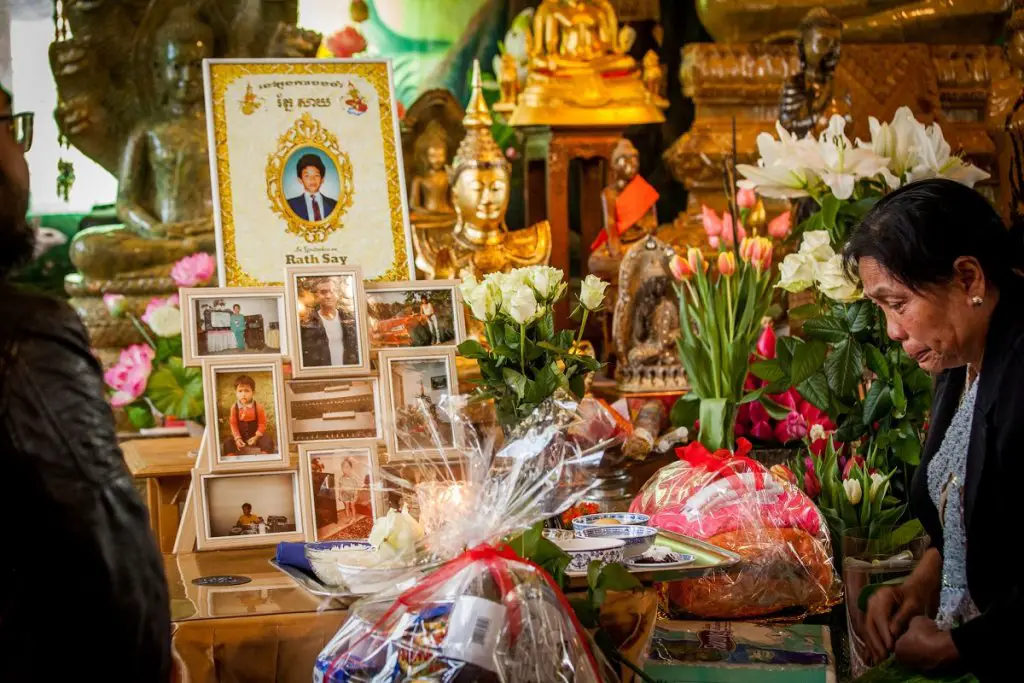
What Is The Buddhist Funeral Service Like?
- Location: Many traditional Buddhist funerals will happen either in a family home or sacred space. It is acceptable for a funeral to be performed in a funeral home.
- Altar: The Buddhist funeral will feature an altar. Upon the altar are photos or statues of Buddha, as well as photos of the deceased. Sometimes there are objects that honor the person and their life, as well as flowers and offerings of food.
- Ceremony: One or more monks generally lead the funeral ceremony. They offer Buddhist funeral prayers called ultras, as well as reading sermons and saying chants.
- Bells & Gongs: Do not be surprised to hear ringing of bells or gongs during the funeral, as those are ritual traditions common in Buddhist funeral rites.
- Procession: Once the ceremony has concluded if there is an open casket, it may be sealed before being transferred to the crematorium or cemetery.
- Length of Funeral: You can expect a Buddhist funeral to last somewhere between 45 – 75 minutes.
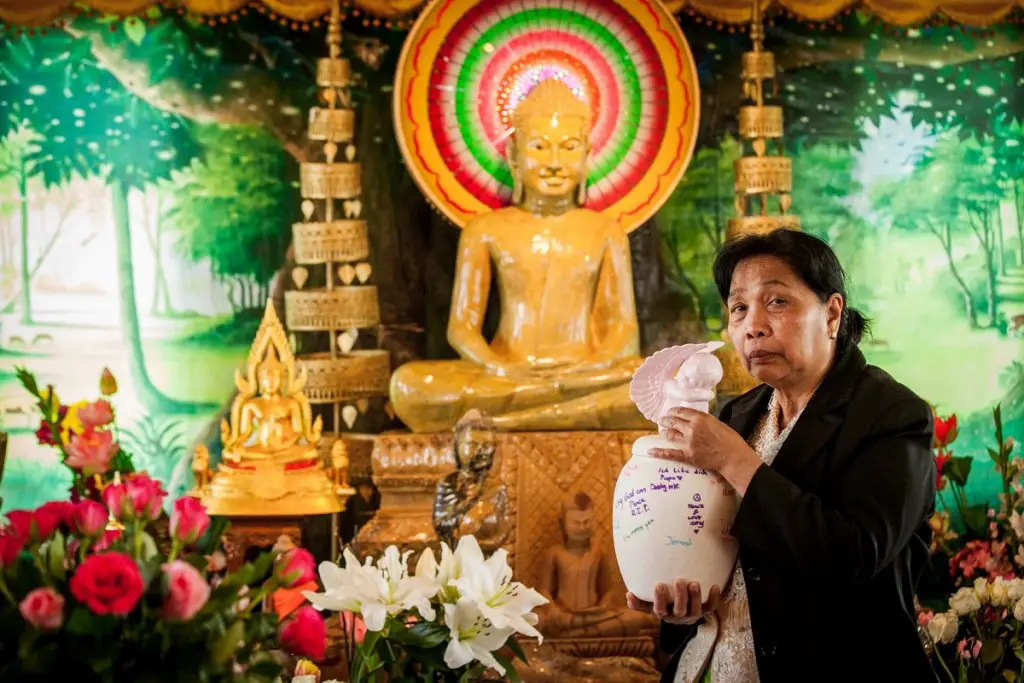
What Is The Mourning Period Among Buddhists?
Although there are many different types of Buddhism, which all come with their own traditions, 49 days is a very common, traditional mourning period. The grieving bereaved family may hold a reception after the funeral to allow friends to offer their condolences.
After that first day, many services will take place at very specific intervals.
What Are The Becoming Rituals On 3rd, 7th, 49th, And 100th Day?
Since many Buddhists believe reincarnation takes place within 49 days, the Buddhists continue to pray for their loved ones at regular intervals. It is not uncommon for the grieving family to pray together every seven days for seven weeks.
The services are held on days 3, 7, 49, and 100 after the person has passed. The 49th day holds special significance because, at that point, they believe their loved one has been released in reincarnation to a new life.
The 100th day is technically the end of the mourning period. On the 100th day, the family holds a celebration to end the mourning period.
What Rules For Buddhist Funeral Etiquette?
When you arrive at the service, you are expected to quietly go to the altar to pay your respects. You can show respect by folding your hands together in prayer. A slight bow is a great way to honor the deceased.
Mourners often bring offerings such as candles, flowers, or fruit. You are not expected to bring offerings, but oftentimes guests do. White flowers are preferred.
Don’t be concerned if you don’t know the chants being done and cannot participate. It is perfectly acceptable to just stand quietly throughout the service. Monks may assist by leaving cues, so you know what to do, such as sit or stand, throughout the service.
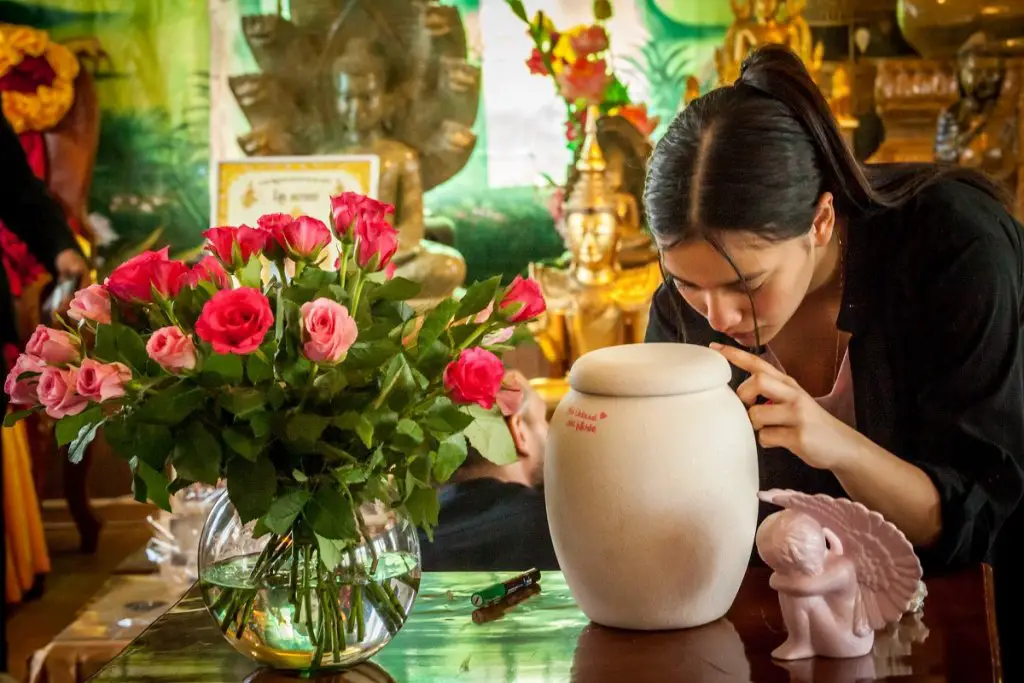
What Do You Say To A Buddhist When Someone Dies?
Expressing your condolences can be challenging when unsure of the beliefs someone adheres to. Some things that are acceptable to say in most situations are:
- “I am thinking of your family.”
- “I am sorry for your loss.”
- “Please let me know if there is anything your family needs.”
- “Your loved one was a great person who did many good things for our community.”
Some Buddhists feel that”Rest in peace” is inappropriate as the soul is always on the move to the next reincarnation after physical death.
What Is The Dress Code For A Buddhist Funeral?
As a guest at a Buddhist funeral, you should dress in very traditional funeral attire. It is appropriate to wear black or another dark color. Avoid wearing anything flashy or expensive-looking to a Buddhist memorial service because that would insult the Buddhist community.
Family members will be wearing white or be covered with a white cloth.

